Filter by
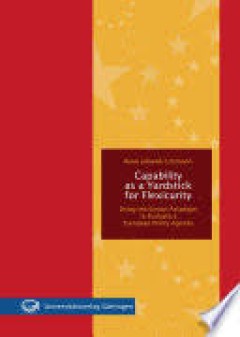
Capability as a yardstick for flexicurity: using the Senian paradigm to evalu…
Flexicurity is a European policy agenda seeking to increase both flexibility and security in the labour-market. This book argues that it needs a revision: Although flexicurity is set out to change the way Europeans work and live, and even though it is being justified by workers’ needs, flexicurity lacks of a clear and democratically justified vision of society. Flexicurity is confronted here …
- Edition
- -
- ISBN/ISSN
- 9783863951634
- Collation
- vi, 296 pages : illustrations (some color) ; 24 cm
- Series Title
- -
- Call Number
- 300 LEH c
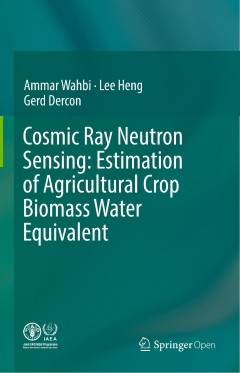
Cosmic ray neutron sensing : estimation of agricultural crop biomass water eq…
This open access book provides methods for the estimation of Biomass Water Equivalent (BEW), an essential step for improving the accuracy of area-wide soil moisture by cosmic-ray neutron sensors (CRNS). Three techniques are explained in detail: (i) traditional in-situ destructive sampling, (ii) satellite based remote sensing of plant surfaces, and (iii) biomass estimation via the use of the C…
- Edition
- -
- ISBN/ISSN
- 9783319695396
- Collation
- x, 33p. : ill.
- Series Title
- -
- Call Number
- 631.432 WAH c

Housing estates in Europe : poverty, ethnic segregation and policy challenges
This open access book explores the formation and socio-spatial trajectories of large housing estates in Europe. Are these estates clustered or scattered? Which social groups originally had access to residential space in housing estates? What is the size, scale and geography of housing estates, their architectural and built environment composition, services and neighbourhood amenities, and metro…
- Edition
- -
- ISBN/ISSN
- 9783319928135
- Collation
- xiv, 424p. : ill.
- Series Title
- -
- Call Number
- 307.768 HOU h
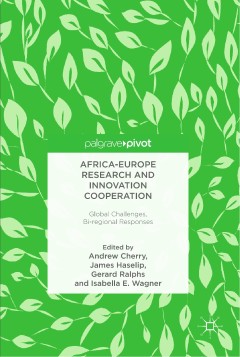
Africa-Europe research and innovation cooperation : global challenges, bi-reg…
This edited volume is concerned with the evolution and achievements of cooperation in research and innovation between Africa and Europe, and points to the need for more diversified funding and finance mechanisms, and for novel models of collaboration to attract new actors and innovative ideas. It reflects on the political, economic, diplomatic and scientific rationale for cooperation, while als…
- Edition
- -
- ISBN/ISSN
- 9783319699295
- Collation
- xxxi, 147p. : ill.
- Series Title
- -
- Call Number
- 507.206 AFR a
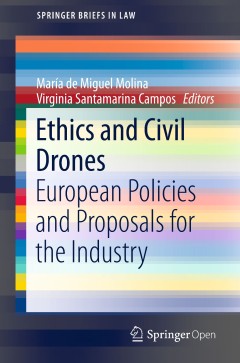
Ethics and civil drones : European policies and proposals for the industry
This open access book disseminates some of the results of the European H2020 AiRT Project (Technology transfer of RPAs for the creative industry). In particular, it presents findings related to mitigating safety and security concerns when civil drones are piloted by the service sector (mainly, the creative industry). European policies regarding drones generally focus on outdoor drones, but they…
- Edition
- -
- ISBN/ISSN
- 9783319710877
- Collation
- x, 92p. : ill.
- Series Title
- -
- Call Number
- 341.2422 ETH e
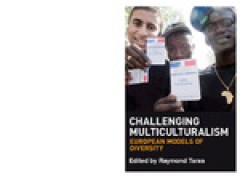
Challenging multiculturalism : European models of diversity
In recent years, European political leaders from Angela Merkel to David Cameron have discarded the term multiculturalism and now express scepticism, critique and even hostility towards multicultural ways of organising their societies. Yet they are unprepared to reverse the diversity existing in their states. These contradictory choices have different political consequences in the 11 European co…
- Edition
- -
- ISBN/ISSN
- 9780748664573
- Collation
- XVI, 344 p.
- Series Title
- -
- Call Number
- 320.561094 CHA c
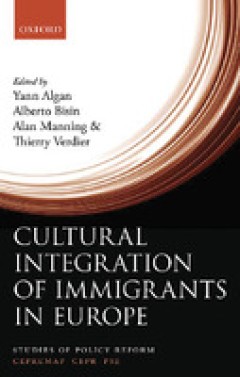
Cultural integration of immigrants in Europe
The concepts of cultural diversity and cultural identity are at the forefront of the political debate in many western societies. In Europe, the discussion is stimulated by the political pressures associated with immigration flows, which are increasing in many European countries. The imperatives that current immigration trends impose on European democracies bring to light a number of issues that…
- Edition
- -
- ISBN/ISSN
- 9780199660094
- Collation
- XIV, 344 p.
- Series Title
- -
- Call Number
- 325.4 VER c
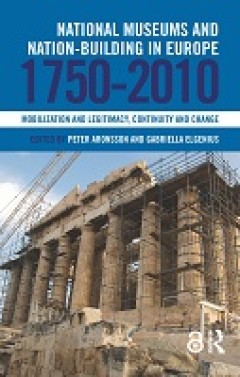
National museums and nation-building in Europe 1750-2010 : mobilization and l…
Europe’s national museums have since their creation been at the centre of on-going nation making processes. National museums negotiate conflicts and contradictions and entrain the community sufficiently to obtain the support of scientists and art connoisseurs, citizens and taxpayers, policy makers, domestic and foreign visitors alike. National Museums and Nation-building in Europe 1750-2010 a…
- Edition
- -
- ISBN/ISSN
- 9780415853965
- Collation
- XIII, 212 p.
- Series Title
- -
- Call Number
- 069.094 NAT n
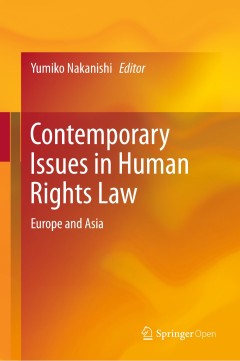
Contemporary issues in human rights law : Europe and Asia
This book analyzes issues in human rights law from a variety of perspectives by eminent European and Asian professors of constitutional law, international public law, and European Union law. As a result, their contributions collected here illustrate the phenomenon of cross-fertilization not only in Europe (the EU and its member states and the Council of Europe), but also between Europe and …
- Edition
- -
- ISBN/ISSN
- 9789811061295
- Collation
- x, 219p. : ill.
- Series Title
- -
- Call Number
- 342.4085 CON c
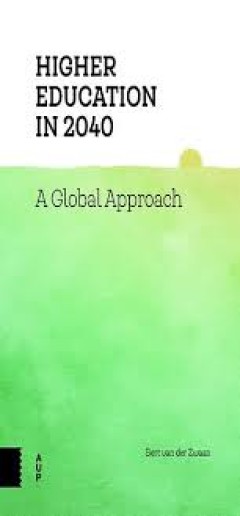
Higher education in 2040
The university is one of the oldest institutions in the world. After eight hundred years, it is still going strong where many other institutions have foundered. The university even appears to be flourishing: in the Netherlands for instance, as elsewhere, student numbers continue to rise, the research enjoys a good reputation and Dutch universities’ results are impressive – certainly if one …
- Edition
- -
- ISBN/ISSN
- 9789048535163
- Collation
- -
- Series Title
- -
- Call Number
- 378.4 VAN h
 Computer Science, Information & General Works
Computer Science, Information & General Works  Philosophy & Psychology
Philosophy & Psychology  Religion
Religion  Social Sciences
Social Sciences  Language
Language  Pure Science
Pure Science  Applied Sciences
Applied Sciences  Art & Recreation
Art & Recreation  Literature
Literature  History & Geography
History & Geography